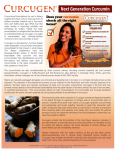Chr. Hansen wins landmark probiotics health claim in South Korea

From now on Chr. Hansen will be allowed to make the health claim “Urex can help vaginal health by increasing lactic acid bacteria” on product packaging and in promotion material in Korea.
The vaginal health probiotic Urex, which contains Chr. Hansen's Probio-Tec strains RC-14 and GR-1, was approved by the South Korean Ministry of Food & Drug Safety (MFDS) last week.
Straightforward health claims process
Lasse Nagell, Chr. Hansen’s sales and marketing vice president, human health and nutrition told NutraIngredients that the company submitted a dossier supporting its application to make a health claim in January this year, and had found the application process “very straightforward and professional”.
He said that South Korea and the Asia-Pacific were important growth markets for Chr. Hansen and that while a number of probiotics were pre-approved for sale in South Korea, this was the first which had gone through the country’s approval process.
He commented: “We chose to submit a claim for this product as it is quite unique, with strong scientific evidence and good documentation. We are thrilled to get approval, and now to be familiar with the approval process.”
The company now had plans to put other probiotics products forward for health claims in South Korea, he added.
The South Korean MFDS’s health claim approval had already generated many enquiries and he said that he expected it to drive growth in sales of Urex in Korea and in Asia-Pacific in general.
European health claim applications
The Urex health claim approval in Korea is also very encouraging from a regulatory point of view in Europe, Nagell added.
“I would say that other regulatory bodies look at collective evidence, and this strengthens the case,” he said.
The two probiotic strains in the Chr. Hansen Urex concept are GR-1, which was isolated in 1980 from the urethra of a healthy woman and identified as L. rhamnosus and RC-14. This was isolated in 1985 from the vagina of a healthy woman and identified as L. reuteri.
Clinical studies have suggested that Urex is efficient against bacterial vaginosis (Martinez et al. 2009). Research has also backed Urex for lowering the risk of recurrent UTI with no resulting antibiotic resistance (Beerepoot et al. 2012).
References:
Canadian Journal of Microbiology;55(2): pp. 133-8
doi: 10.1139/w08-102
‘Improved cure of bacterial vaginosis with single dose of tinidazole (2 g), Lactobacillus rhamnosus GR-1, and Lactobacillus reuteri RC-14: a randomized, double-blind, placebocontrolled trial.’
Authors: Martinez RC et al.
Archives of Internal Medicine –new series- 2012;172(9):704-711
doi: 10.1001/archinternmed.2012.777
‘Lactobacilli vs Antibiotics to Prevent Urinary Tract Infections: A Randomized, Double-blind, Noninferiority Trial in Postmenopausal Women.’
Authors: Beerepoot, et al.















